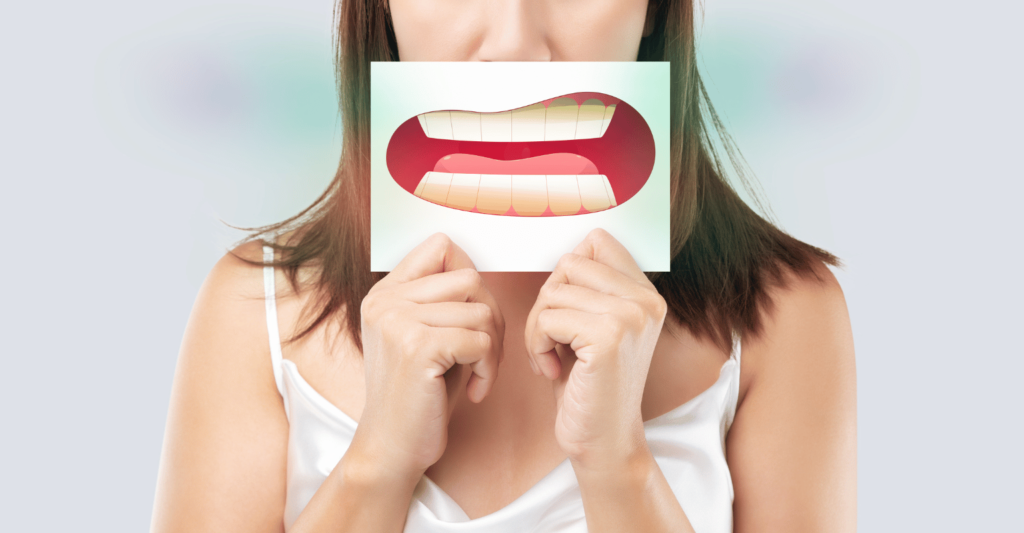Conquering Bad Breath: Causes, Treatments, and Prevention
Morning breath. Coffee breathe. Garlic breath. We’ve all been there. Bad breath, also called halitosis, is a common problem. It can make you self-conscious and even impact your social interactions. But bad breath isn’t just a fleeting annoyance; it can sometimes signify something more serious. It can sometimes indicate a more serious health condition, so visiting your dentist is necessary.
This post explores the causes of bad breath, treatments, and prevention. We’ll explore everyday culprits like garlic and underlying medical conditions. We’ll also cover the best ways to keep your breath fresh and explore resources from the Mayo Clinic Health Library for more medical education.
What Causes Bad Breath?
Bad breath often starts in the mouth. It could be caused by the food you eat or poor oral hygiene. Sometimes, it indicates a health condition. So, go in for your annual physicals, as visiting a medical professional will help ease your worries.
Oral Hygiene And Bad Breath
Most bad breath stems from not keeping our mouths clean. Food particles linger, bacteria multiply, and odors develop. Without regular cleaning (brushing and flossing), things start to smell. Consider adding the Mayo Clinic Guide to your healthy lifestyle,e too.
Not brushing and flossing lets food particles stick around. This creates a feast for bacteria, leading to plaque buildup. Eventually, tooth decay and gum disease can develop. Both of these conditions cause bad breath. Your mouth odor could also be caused by how often you clean your tongue, so keeping that uneven surface clean is important.
Foods That Cause Bad Breath
Some foods, delicious as they are, linger on your breath. Garlic, onions, and certain spices are common culprits. These foods contain sulfur compounds that enter your bloodstream after digestion.
From there, they’re carried to your lungs, impacting your breath. Coffee’s strong aroma and dehydrating effects can also worsen breath. Even sugary foods and drinks can contribute, as bacteria love sugar and produce odors.

Medical Conditions And Bad Breath
While less common, underlying medical conditions can cause bad breath. When speaking with a medical professional, keep your frequently asked questions handy. Here are some examples of those medical conditions.
Dry mouth, or xerostomia, is often a culprit, especially in the morning. Without enough saliva, your mouth becomes a breeding ground for odor. Certain medications, dehydration, medical treatments, and even smoking can worsen dry mouth.
Digestive issues can cause bad breath. Symptoms of stomach problems, such as GERD and heartburn, can cause bad breath. Symptoms of sinuses, tonsils, lungs, or kidney problems can sometimes manifest as halitosis. Medical issues like diabetes and kidney problems can also create characteristic smells in the breath.
Bad Breath Remedies
You can often treat bad breath yourself. But if it’s persistent, see your dentist to rule out health conditions. Persistent bad breath might signal an underlying dental problem.
Daily Oral Care and Your Breath
Good oral hygiene is essential for fresh breath. Your breath can improve from good daily oral care. Here’s your routine:
- Brush thoroughly twice a day: Use fluoride toothpaste to remove plaque.
- Floss every day: Floss reaches tight spaces where food particles hide. Keep up with your flossing so your breath smells good.
- Clean your tongue: Brush or scrape it to remove bacteria. Use a tongue cleaner to make your breath smell good.
- Regular dental visits: Get regular checkups and cleanings.
Lifestyle Changes For Fresh Breath
Simple tweaks can improve your breath. Drink more water to protect your gums. Drink lots of water throughout the day. This helps rinse away food particles and combat dry mouth. Quit tobacco: Smoking and chewing tobacco worsen dry mouth and contribute to halitosis.
Limit bad breath foods by Watching your diet. While smelly foods aren’t the main culprit, they don’t help. Be mindful of your intake of foods with potent flavors.
Preventing Bad Breath
Proper oral hygiene makes controlling bad breath simple. The main goal is healthy gums that can fight germs and bacteria and prevent cavities.

Maintain Proper Oral Hygiene
Practicing proper oral hygiene every day prevents bad breath. Follow these habits for proper oral hygiene:
- Brushing twice daily with fluoride toothpaste
- Flossing
- Rinsing with an FDA-approved mouthwash.
- Be sure to get your regular teeth clean so your breath smells nice.
Types Of Bad Breath Smells
Halitosis, commonly called bad breath, can present itself as a variety of smells, varying from one flavor to another, each perpetrator of their own pathology or health condition. The aroma of halitosis can be affected by everything from dental hygiene to more serious conditions such as diabetes or kidney disease. Realizing what kind of smell it is could be key to deciding what’s wrong and how to fix it best. Here are a few common types of bad breath odors and the possible reasons behind them:
Fruity Or Sweet Smell
A sweet fruit smell is commonly linked with illnesses such as uncontrolled diabetes. If the body cannot process states of glucose properly, it starts using fat for energy, forming ketones as a byproduct. These ketones can produce a sickly sweet, fruity smell on the breath, a state called diabetic ketoacidosis that needs urgent medical care.
Rotten Or Foul Odor
Breath that smells like rotting food or decaying matter generally indicates poor oral hygiene, which means food particles and bacteria have built up in the mouth. That can cause problems such as gum disease, tooth decay, or oral infections like abscesses, all of which cause malodorous breath.”
Metallic Smell
A metallic smell on the breath is usually associated with oral hygiene problems, such as gingivitis or periodontitis, in which bacteria proliferate in the gums and cause inflammation. Other medications, such as antibiotics or chemotherapy, can also contribute to an unpleasant odor by changing the normal flow of bacteria in the mouth.
Ammonia-Like Smell
Breathing that smells of ammonia or urine can signal kidney problems like chronic kidney disease. When the kidneys are not working properly, waste products accumulate in the bloodstream and are excreted through the lungs, leading to a strong, ammonia-like odor on the breath.
Sour Or Acidic Smell
A sour or acidic smell to your breath is usually a sign of gastroesophageal reflux disease (GERD) or acid reflux. Under these conditions, stomach acid regurgitates from the stomach into the esophagus and mouth, creating a sour taste and smell that lingers. It can also produce a burning feeling in the chest, known as heartburn.
Fishy Smell
Fishy breath can indicate serious underlying problems, such as kidney failure. When the kidneys do not filter waste products correctly, urea builds up in the bloodstream and is released from the lungs, giving the breath a strong, fishy odor. Bad dental hygiene can also lead to this type of bad breath.
Each bad breath odor can indicate different causes, so listening to the specific smell can help with early diagnosis and treatment. Maintaining good oral hygiene, staying hydrated, and visiting a healthcare provider, such as a dentist, may assist in treating and preventing halitosis. Regular regular doctor check-ups will help find you out of the issue.
See Your Dentist And Prevent Future Breath Problems
Regular dental visits are like check-ins for your breath. Professional cleanings reach spots you might miss. Your dentist can spot potential issues and recommend treatments for good gum health. They’ll provide personalized advice for healthy gums, which helps eliminate mouth odor.
Conclusion
Bad breath is a common experience. Most cases are preventable with good oral hygiene and lifestyle changes. Visit a medical professional annually for insight into this frequently asked question and helpful resources, such as continuing medical education on good breath.
Addressing dry mouth, quitting tobacco, and eating healthily can help. Scheduling dental check-ins is also important. Healthy gums are vital for eating and speaking comfortably. Treating the cause will eliminate future breath problems.
FAQs
How can I permanently get rid of bad breath in my mouth?
As a preventive measure, brushing, flossing, mouthwash, and regular check-ups can keep bad breath at bay. Long-term freshness, like avoiding “bed head,” requires drinking enough water and addressing any underlying health concerns.
What is the main cause of bad breath?
The most common cause of bad breath is bad oral hygiene, which causes bacteria to build up on the tongue, gums, and teeth. Other causes can be gum disease, dry mouth, or systemic problems like diabetes or acid reflux.
How do you clean your gut for bad breath?
A well-balanced, high-fiber diet, staying hydrated, and eating probiotics all promote gut health, which can reduce bad breath stemming from digestion. Not eating processed foods and having regular bowel movements also help freshen your breath.
How to stop a smelly breath?
Prevent bad breath by maintaining your oral hygiene, drinking enough water to stay hydrated, and limiting the intake of strong-smelling foods like garlic and onions. If the issue continues, visit a dentist to rule out any underlying oral health or systemic issues.
